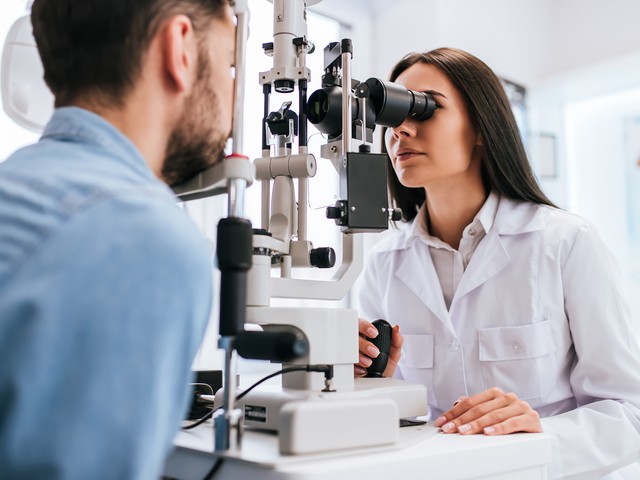You happen to be beginning to have difficulties with your eyes – blurred vision, eye strain, headaches – and your insurance says it will pay for either an ophthalmologist or an optometrist, but what’s the difference? Which eye care skilled ought to you appear to for help with your particular vision issues?
Etymology of the Terms
The term optometrist traces back to the Greek words optos (noticed or vision) and metria (one who measures). Actually, that would make an Optometrist one who measures vision, but a modern day Optometrist does far more than just measure your vision.
Ophthalmologist comes from the Greek words ophthalmos (literally “the seeing”) and logia (study) creating an ophthalmologist 1 who research seeing. This includes both the diagnostic and treatment domains of the optometrist as effectively as deeper studies into eye science and much more sophisticated health-related remedies.
Coaching in the US
In the US, optometrists are essential to total four years of undergraduate work, as well as 4 years of post-graduate work. In addition to ocular anatomy, ocular illness, ocular pharmacology, and other eye-connected subjects, they also are trained in far more generic regions such as human anatomy, general pharmacology, and biochemistry. Upon productive completion of their coursework, they are awarded the license of Medical professional of Optometry (O.D.). Some optometrists may possibly also total a period of residency (i.e. hospital-based training) right after graduation.
Ophthalmologists add to the eight-year education of the optometrist an more year of internship and 3 more years of hospital residency. Numerous pick to add yet another year or far more of education in such specialized regions as Cornea and External Disease, Glaucoma, Neuro-ophthalmology, and Pediatric Ophthalmology. For the additional effort, they are licensed as Medical Physicians (M.D.), or for these trained in Osteopathic schools, as Medical doctors of Osteopathy (D.O.).
Services Provided
As an O.D., an optometrist functions as a principal care giver giving complete vision care. This involves eye examinations which screen not only for refractive errors, but for healthcare conditions such as glaucoma, cataracts, macular degeneration, diabetes, etc. Optometrists are licensed to proscribe corrective lenses, remedial drug therapies (limited to eye remedy), and depending on their training and licensing state, may even perform some limited sorts of eye surgery.
As an M.D. or D.O., an ophthalmologist can supply all the solutions of an optometrist, but typically fills the role of consulting physician, licensed to supply a lot more advanced diagnostics and treatment options like extra in depth surgical procedures. As noted under Coaching in the US, quite a few ophthalmologists will have areas of specialization and may prefer to perform exclusively in these regions.
Rule of Thumb for Selecting an Eye-Care Provider
When looking for out a main care giver, it is probably very best to look for an optometrist as their coaching suits them properly to that function, but for specialized services such as eye surgery, or remedy of sophisticated eye disease such as cataract, glaucoma, or macular degeneration, the extra training of an ophthalmologist could possibly be necessary. In designer eyewear brands of cases, the two function collectively in a supportive connection.
The Third Member of the Group
An annual checkup by an optometrists or ophthalmologists is often a good notion, and in the US, they are the only practitioners licensed to proscribe corrective lenses, but when you have prescription in hand you can enlist the solutions of the third licensed member of the team, a “dispensing optician”. These are practitioners educated to design and style, fit, and dispense optical lenses and other vision-related devices.
